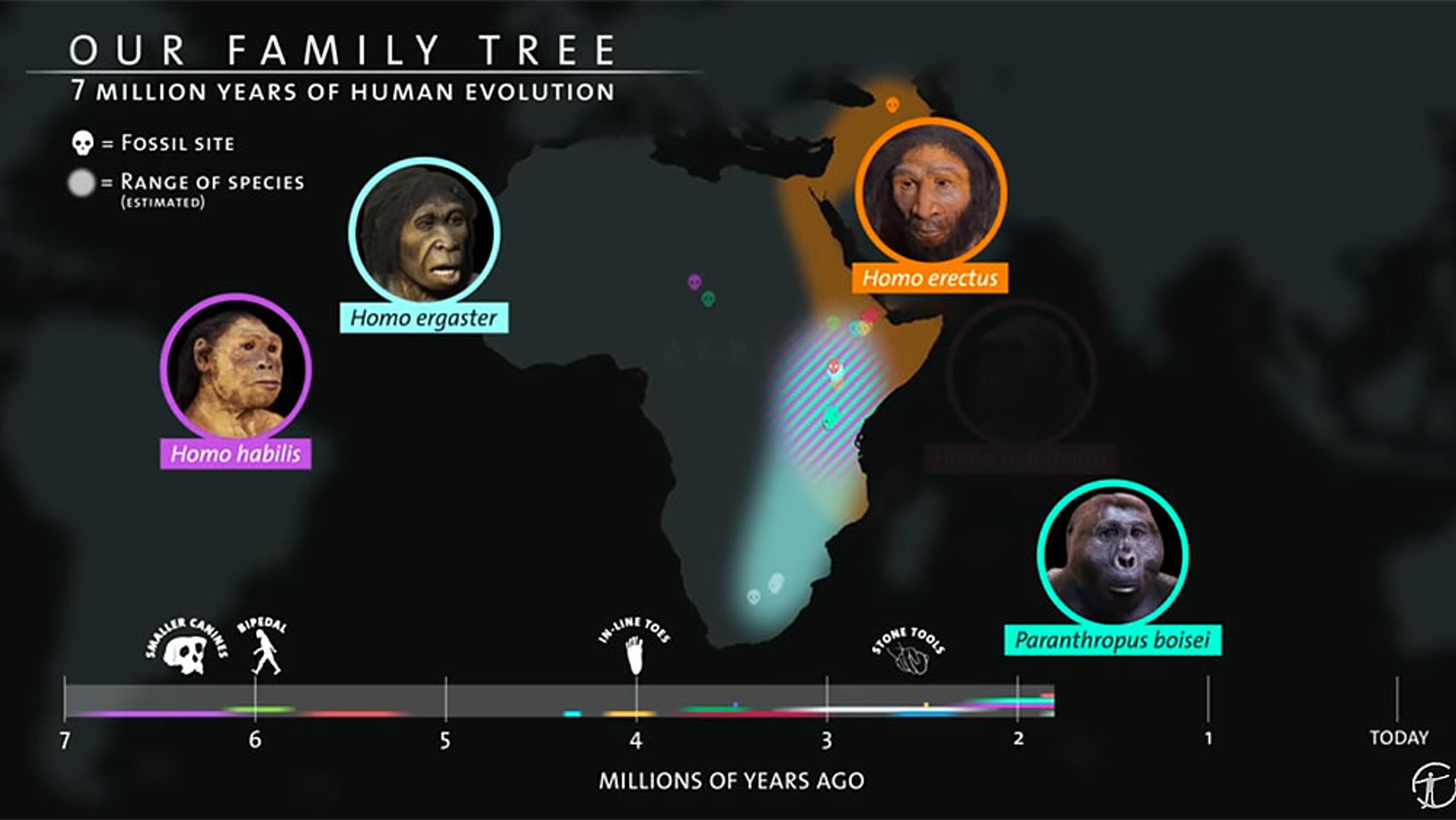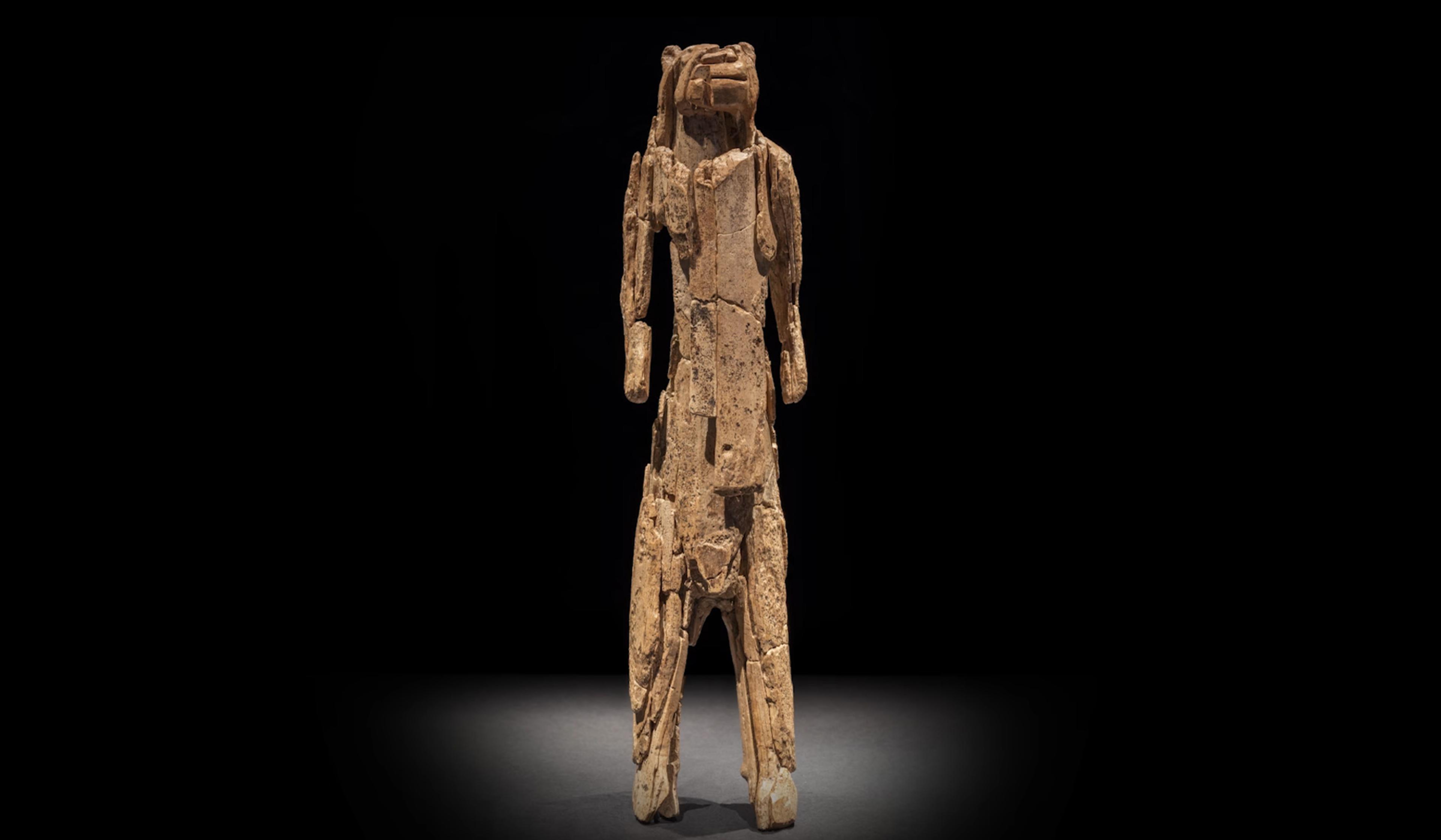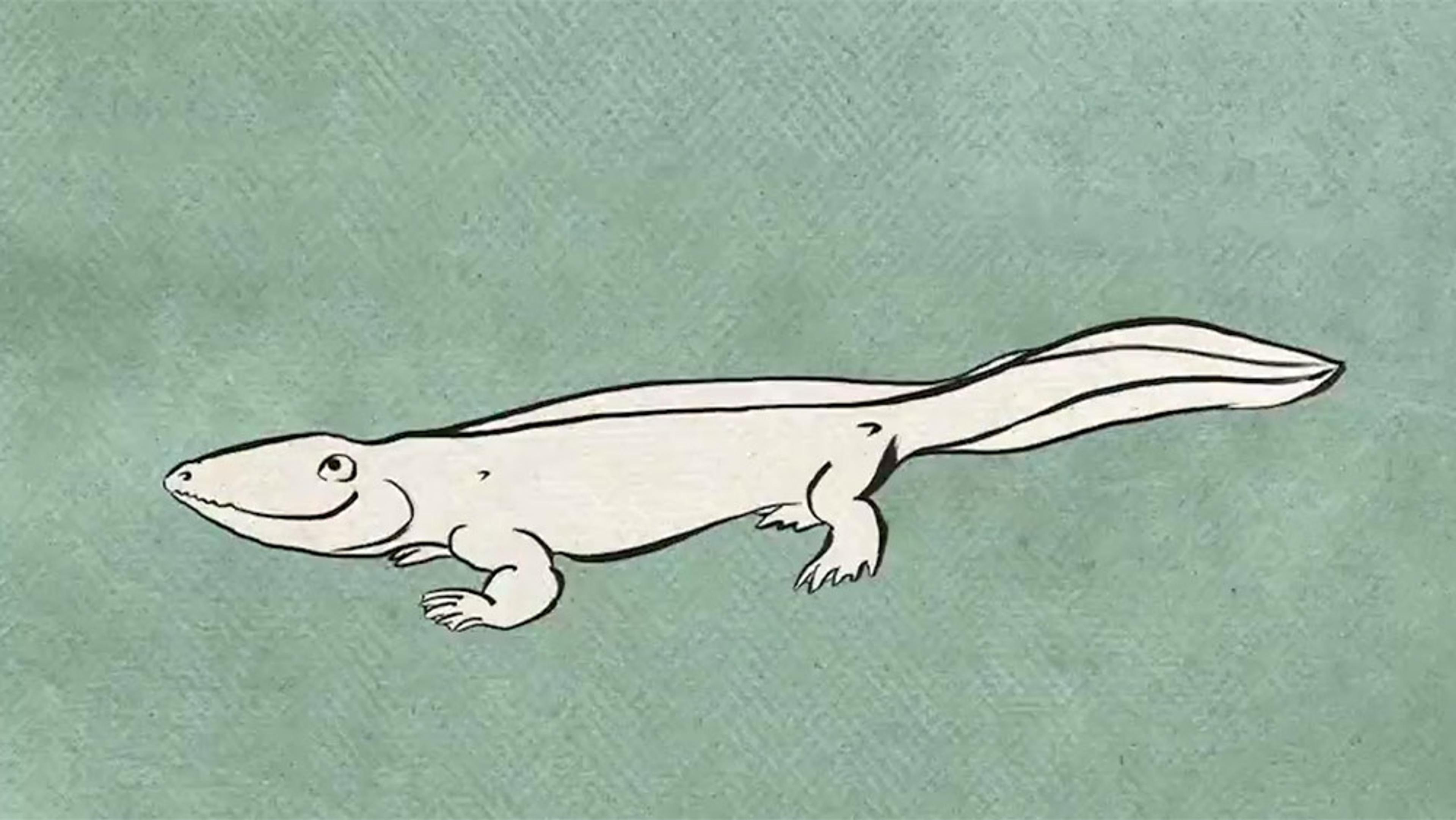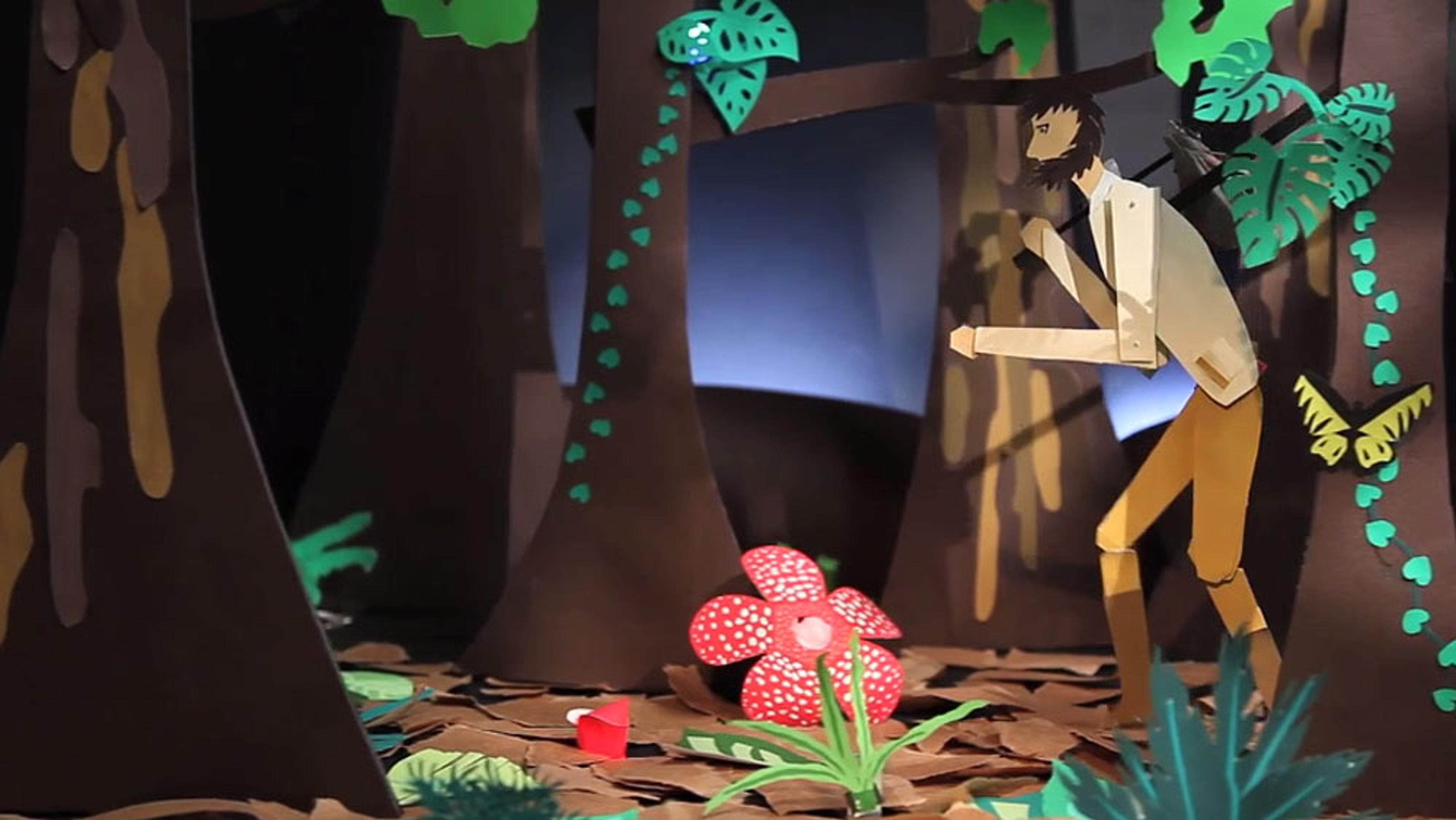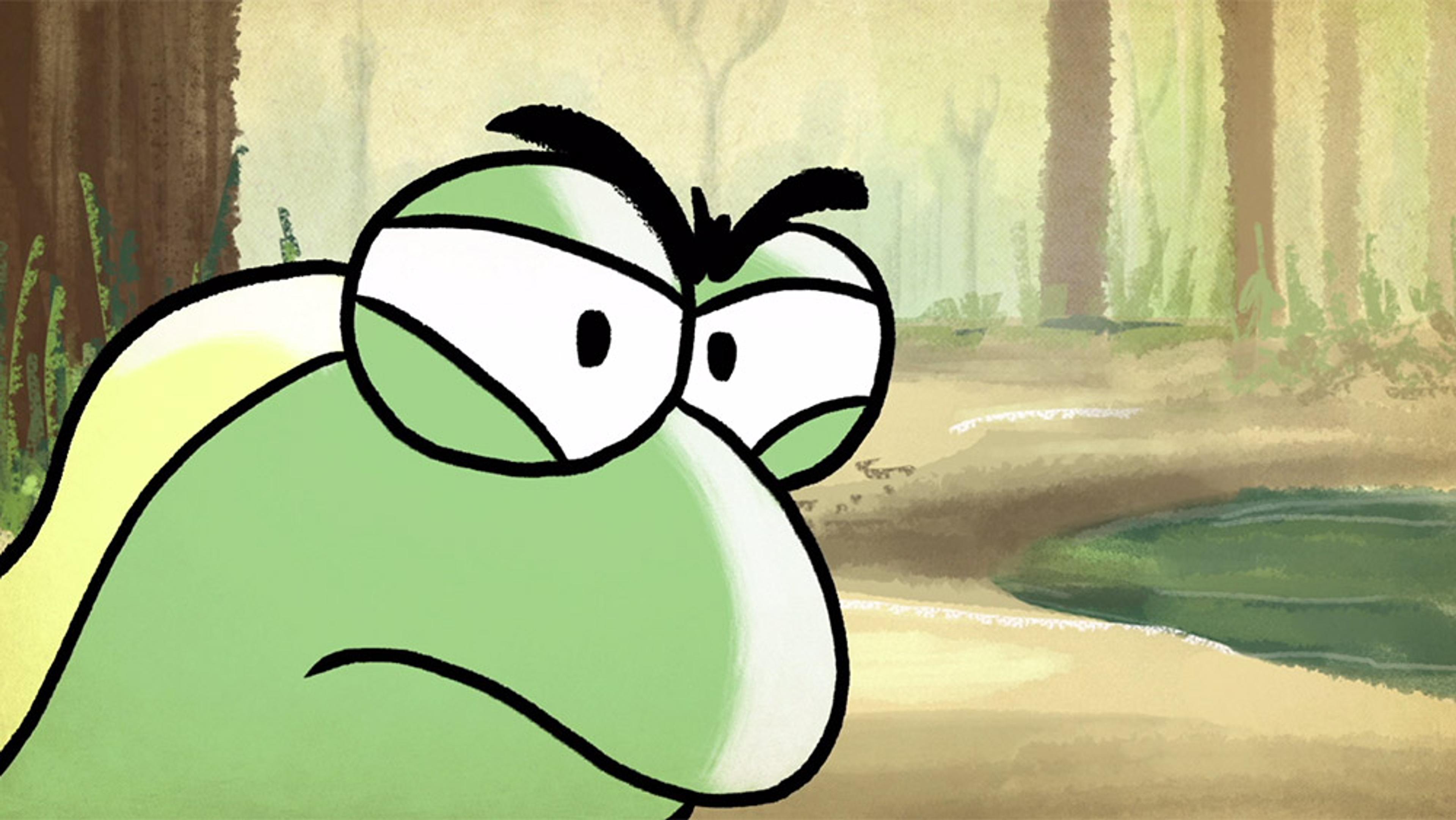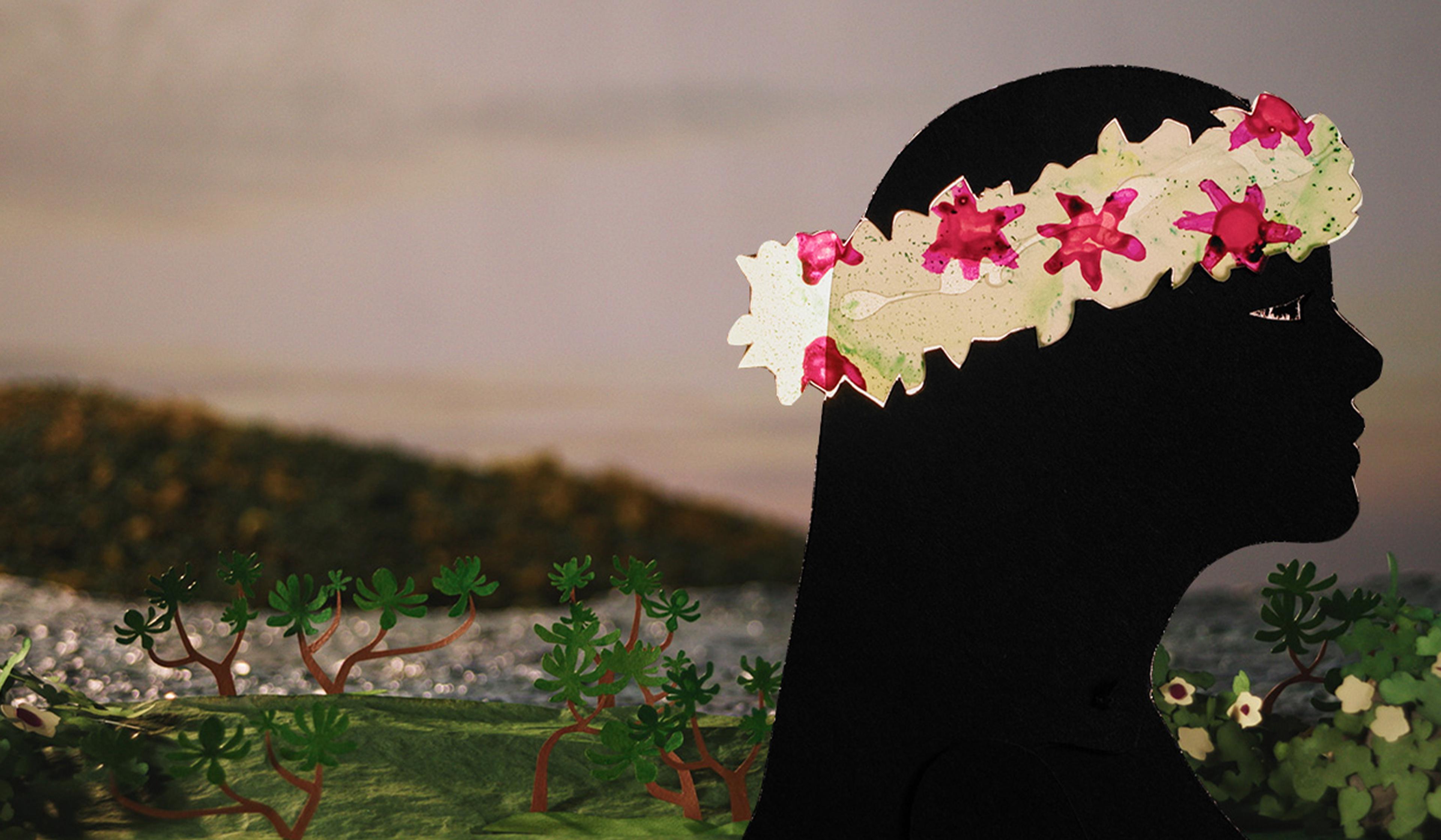The British-born scientist Mary Leakey (1913-1996) was one the foremost paleoanthropologists of the 20th century. Alongside her husband Louis Leakey (1903-1972), she was responsible for several important breakthroughs in East African prehistory. Arguably her most important discovery occurred after her husband’s death when, during an excavation in Tanzania in 1976, she and her team found a set of 3.6-million-year-old early hominid footprints that had been improbably preserved by a combination of volcanic ash and rain. These footprints revealed, for the first time, the way in which our earliest bipedal ancestors walked upright.
This video from Sweet Fern Productions recounts how Leakey’s passion for paleoanthropology led to the discovery of what are now known as the Laetoli footprints, which continue to shape our understanding of our early ancestors – and by extension, ourselves.

